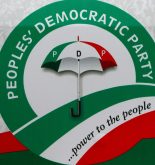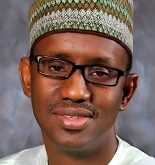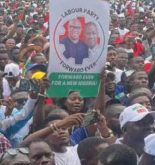By Udeme Nana
Letters are usually written to convey feelings, thoughts, the attitudes or mindset of an individual towards another at the exact time of writing. They capture the environment and take a lot of reflection by the writer since they could be read and analysed by other parties, inferences drawn and preserved for posterity.
The act of letter writing offers opportunity for reasoning and deep reflection. This leads to deliberate conceptualisation, selection of words from an appropriate register, organisation and presentation. It provides opportunity for correction of errors in thoughts and facts set down, and an overhaul in presentation if, after circumspection, it is considered necessary.
It also makes for a second look at even the grammar to ensure that what leaves the writer and is received by the recipient is an accurate piece – an embodiment of the body, soul and spirit of the writer. Letter writing leaves no cloud of uncertainty about the event which provides the context for the letter.In taking time out to work diligently to select some important letters written by Chief Olusegun Obasanjo, Nigeria’s longest serving leader, the author, Mojeed Musikilu, has presented Chief Olusegun Obasanjo in his true elements.
The letters in the Letterman provide a tour around the life and times of Obasanjo as an army officer, a General Officer Commanding (GOC) at the war front, an administrator, as a Federal Commissioner, as a military Head of State, a private citizen, an international statesman, and an activist against bad rule by his successors – AlhajiShehu Shagari, General Ibrahim Babangida, Sani Abacha, Goodluck Jonathan and Muhammadu Buhari.
Hopefully, another edition should include his latest missiles directed at President Muhammadu Buhari and the Chairman of the Independent National Electoral Commission, (INEC\), Professor Mamood Yakubu, over the conduct of the 2023 general elections in Nigeria. In all the letters, Obasanjo shot from the hips, without any display of jiggery – pokery. He wrote the letters as occasions presented themselves and damned the consequences. As a military officer, the ones he wrote to his superiors were quite adventurous.
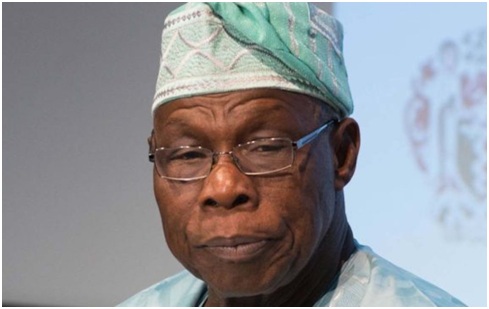
Former President Olusegun Obasanjo
The book also provides incontrovertible evidence on issues hitherto framed as beer parlour, pepper – soup and “happy hour” gossips. Some of those issues include the encounter with Chief Audu Ogbeh who served as the Chairman of his Party, the Peoples Democratic Party (PDP), his face off with then Governor Orji Uzor Kalu and the legend surrounding the fight against white minority rule and apartheid in South Africa, Zimbabwe and Namibia. The hot exchanges between Obasanjo and Orji Uzor Kalu stand out as an example in bare knuckle-like engagement only comparable to his engagements with Chief Obafemi Awolowo and, later, his fight with Chief Audu Ogbeh. These three persons tried to cut Obasanjo down to size and fed him with the same verbal venom which he reserves for others.
The past-time of letter writing which seems out of fashion nowadays, reveals the strategic mindset of Chief Obasanjo. It further shows him as one individual who, early in time, had an eye for a pride of place in Nigerian, African and world history. It is as if from the moment he got the command of the legendary 3rd Marine Commando of the Nigerian Army, the bug that stung him made him to imagine that he was destined for greatness in life going forward. This is because there is no record of his letters before he assumed that important command. Until that point, he was not in full public glare. As a wily army officer, he captured some moments which he considered critical and preserved them for posterity. He did not want any guesses; he wanted his history, his story written on his own terms.
He made the job of historians, political scientists, public affairs commentators, biographers and researchers easier by giving them concrete data to serve as raw materials for their work. The Obasanjo letters provide some brilliant lessons in public administration as seen in his letter to the Lt.Commander Alfred Diette Spiff, who served as the Governor of the old Rivers State. More than 54 years later, Nigerians still witness scenarios where work comes to a stop in some states when a governor is travelling outside the state or returning. Government officials, their aides and party supporters usually turn such outings into carnivals with hired band sets, uniform (asoebi) and all manner of dancers causing traffic hold up along major roads just to see off or welcome a governor from a trip!
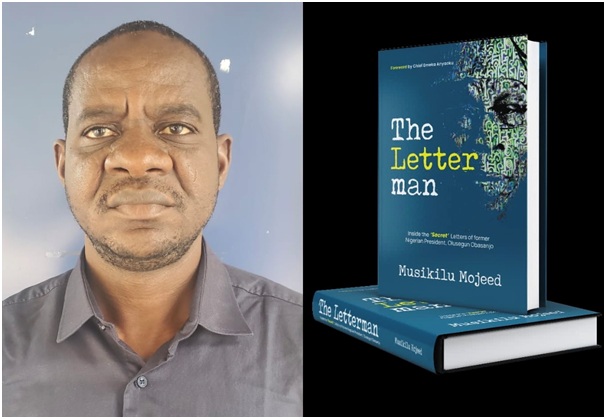
Mojeed Musikilu, Author of Letterman and Editor-in-Chief, Premium Times
The Letterman provides several lessons on the personality of Chief Olusegun Obasanjo which includes his frugality or prudence depending on whether one wants to perceive him negatively or positively. Reading the book reveals his impatience, revulsion, rejection and antagonism to public officials inclined to dip their fingers into the public till.That streak seems ingrained in his DNA. He comes away as one who has always been an anti-corruption crusader.
No wonder he took steps to create the Independent Corrupt Practices Commission (ICPC), and the Economic and Financial Crimes Commission (EFCC), when he became the civilian President of Nigeria in 1999. But no matter how he tried while in office as the President, he was helpless against some of his ministers who fronted for federal government contracts only to abandon the projects after collection of hefty mobilisation fees. The East-West road in South-South Nigeria is one example of his failings on that front.
The Letterman reveals Obasanjo as brutally frank, bold, fearless and occasionally impudent as shown in his letter to his Commander-in-Chief, General Yakubu Gowon, who was at that time Head of State. In that letter, he requested that the Governor of Rivers State, Alfred Diette Spiff, be posted out of Rivers State. Would a Field Marshall Idi Amin Dada have tolerated a Col. Obasanjo’s seeming meddlesomeness?
The book reveals the level of tolerance, mutual respect, openness, forthrightness and frank disposition in the leadership cadre of the Nigerian Army at the time. Thankfully, he didn’t go missing in action or got involved in a fatal car or helicopter crash. He didn’t end up like General Dan Archibong, General Owoeye Andrew Azazi, Generals Tunde Idiagbon or Joseph Garba reported to have succumbed to a sip of bottled water or a MoshoodAbiolawho lost the race of life after drinking a harmless cup of tea in Aso Rock.
General Obasanjo’s letters from jail convey his deep faith in God. Some of the communication reflected the camaraderie in the Armed Forces of his era and the rules of engagement for army officers during a war. They reveal his patriotism, nationalistic fervour and as one who doesn’t suffer criminals gladly. His stance on the Buruji Kashamu affair lends credence to that reconstruction but one wonders what happened when under his watch as President and de facto leader of his Party, nomination tickets were gifted to several ‘well connected partisans’ who had failed party nominations or to those who didn’t contest at all while those who contested and won in those costly exercises lost out. Such incidents blighted his “holier than thou complex.” Or is the fight against corruption limited to money laundering, bribery, misappropriation or misapplication of public funds?
In a country where the subject of history is no longer available in the curriculum, the Letterman fill an important gap by providing knowledge about several historical events and figures in Africa and the global community. Names of early African statesmen like Houphet Boigny of Cote D’Voire (formerly Ivory Coast) Seretse Khama of Botswana, Kenneth Kaunda of Zambia, Bishop Abel Muzorewa and Ian Smith of Rhodesia (now Zimbabwe), Samora Machel of Mozambique, Sam Nujoma of Namibia, Julius Nyerere of Tanzania, Idi Amin of Uganda, Mobutu Sese Seko of Zaire, Justin Lekanya of Lesotho, Jerry Rawlings of Ghana, Joshua Nkomo of the Zimbabwe’s African Peoples Union (ZAPU ) and Robert Mugabe’s Zimbabwe African National Union ( ZANU ), among others. His engagements as a frontline statesman made him to shine as a lone star on the horizon of Africa.
The bold and frank exchanges between General Obasanjo and Prime Minister Margaret Thatcher of Britain over the British Prime Minister’s foot dragging over the dismantling of Apartheid in South Africa and his correspondence with the Gerald Ford-led government of the United States of America were signposts of Nigeria’s promise as an emergent power in Africa and in the world. The salvos in this section would have brought a measure of respect for Nigeria and Africa in the comity of countries. He also earned the respect of other world leaders.
In the Letterman, the author has unearthed some letters scripted by Obasanjo to provide a commentary on the man. This has helped to reconstruct him in the process. Of note is a little glimpse of Obasanjo’s humane side as seen in his letters to his friend, ChukwumaKaduna Nzeokwu and Nzeokwu’s family after the death of that first Nigerian coup planner.
On the whole, the 466 page-book, published by Premium Times Books last year which reviews some critical moments in Obasanjo’s public life, is a good job done by Mojeed Musikilu. Obasanjo’s letters were logical, clear,and straight to the point without ambiguity. However, it would be nice to read another volume comprising the letters sent to his sweethearts – those whom his brother-in-arms, AlabiIsama, presented as ‘comfort girls’ during the Nigerian Civil war. After all, some of these “girls” also turned out to serve in enviable positions under Obasanjo’s civilian administration.
Such letters would, no doubt, show the softer side of Obasanjo because the selections examined in this volume frame Obasanjo as an unsmiling, hard, no-nonsense person with a very high intelligence quotient but very low in empathy in his relationship with others.
Dr. UDEME NANA, a Mass Communication scholar is the Founder of Uyo Book Club.


